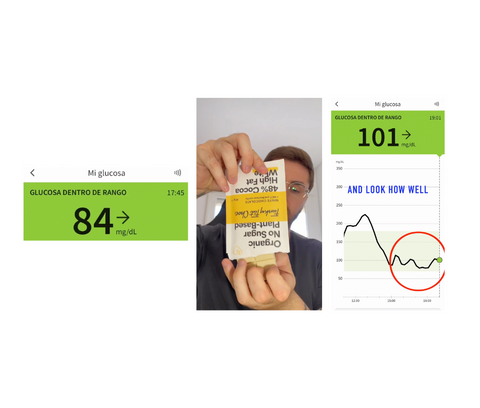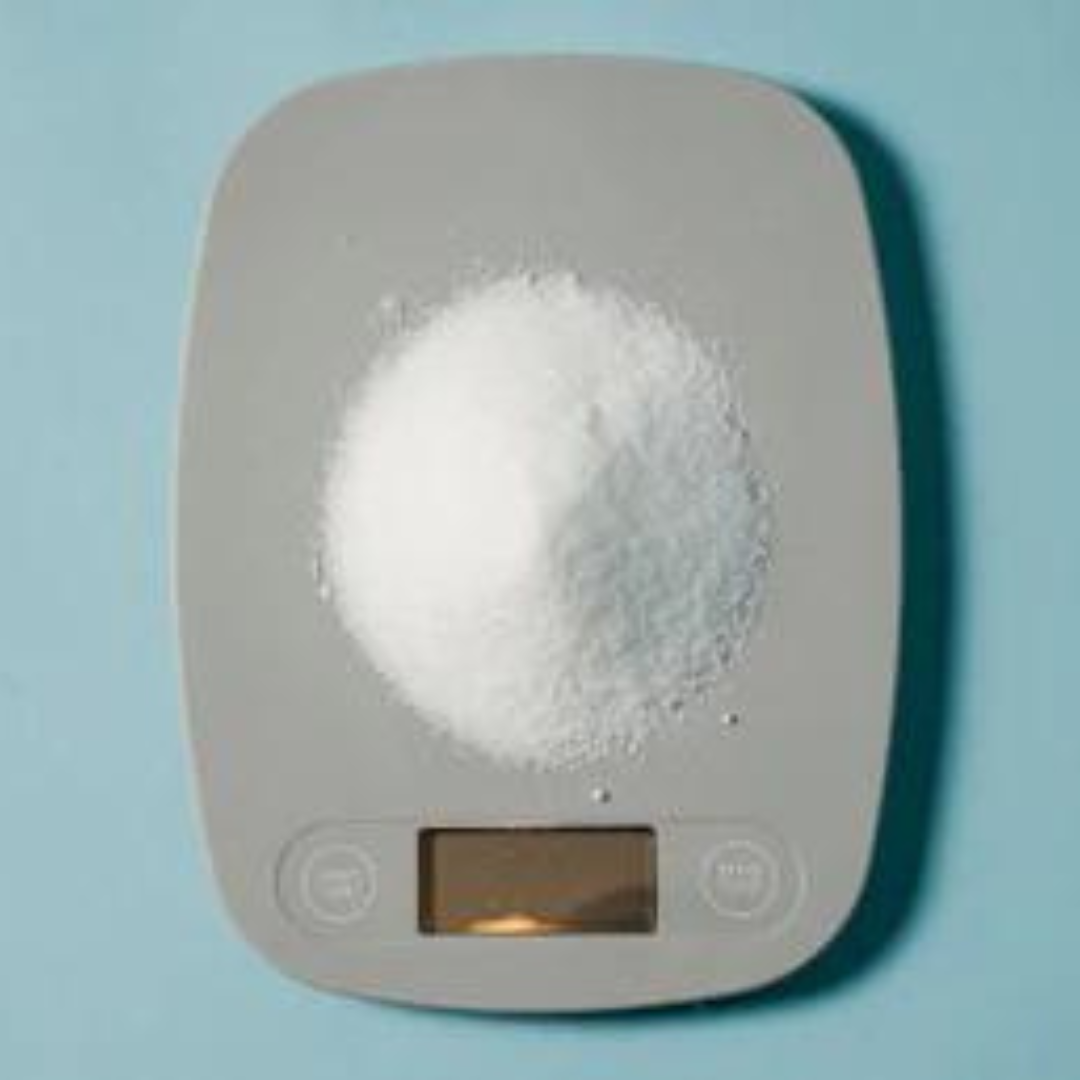It’s not the first time that we’ve spoken about the effects of sweeteners on our bodies. Today we want to focus on why not all of them are good for you, because, as you can imagine, not all of them have a negative impact on the body.In fact, there are a few beneficial ones and we want to tell you about them. So keep reading!
Research had shown that our Funky Fat Foods Chocolates do not impact your glucose levels.

What are artificial sweeteners?
Before saying anything else, we want to explain very quickly what artificial sweeteners are to have a clear idea and a better understanding of what we’re talking about.
Artificial sweeteners are synthetic chemicals that stimulate the sweet taste receptors on the tongue. They’re often called low-calorie or non-nutritive sweeteners. These types of sweeteners give things a sweet taste, without any added calories. Therefore, they’re quite often added to foods that are marketed as diet or “health” products. The most common artificial sweeteners are saccharin, aspartame, sucralose, neotame, and acesulfame potassium.
How artificial sweeteners impact blood sugar and insulin levels
To understand how blood sugar and insulin levels rise, the first step is to know how our body works and processes sugar. It’s pretty simple, eating carbohydrates causes a rise in blood sugar levels, and after that insulin is released to bring blood sugar levels back to normal. If blood sugar levels drop too low, the liver will release stored sugar to stabilize it.
Some people claim that artificial sweeteners may interfere with this process, meaning that the sweet taste of artificial sweeteners triggers the cephalic phase (when the body releases insulin to level blood sugar levels) causing a small rise in insulin levels.
It’s safe to say that artificial sweeteners won’t raise your blood sugar levels in the short term. However, these types of sweeteners are linked to changes in gut bacteria when used frequently. If you use any artificial sweetener on a daily basis or pretty often, it could make your cells resistant to the insulin your own body is producing. Leading to both increased blood sugar and insulin levels in the long run.
Best and Worst sweeteners
When it comes to food (and many other things in life) it is best to go the natural way. The less processed something is, the better! We want to take a look at the best and worst sweeteners that are out there, especially if you’re on a keto lifestyle.
Best sweeteners
1. Erythritol.
Erythritol is a type of food additive called sugar alcohol. This name can be misleading since it is a sugar alcohol, but not in the way most people think. It’s made from fermented corn or cornstarch. This sugar alcohol occurs naturally in small quantities in fruits and fungi like grapes, melons, and mushrooms. It’s only partially absorbed and digested by the intestinal tract. The reason for it being different from the rest is also because it’s extracted from a natural source instead of being chemically created in a lab. Our erythritol is also non-GMO and certified organic.
What we love most about erythritol is that it has a negligible amount of calories and carbs, it doesn’t raise blood sugar or insulin levels, its active compound passes into the urine without being used by the body, and it may prevent dental plaque and cavities compared to sugar or other sweeteners. In fact, we love it so much that we’ve added it to our own functional chocolate bars.

2. Stevia.
Stevia is a natural sweetener derived from the Stevia rebaudiana plant, which is part of the sunflower family. It’s considered a nonnutritive sweetener. This means it contains little to no calories or carbs, which makes it perfect for a keto diet. It’s safe to use and easy to find. Our recommendation is to always try to choose the organic option, free from additives and other nasty things.
The things we like the most about stevia are that it has no calories, no carbs, does not raise blood sugar, and it’s very sweet so a little goes a long way. On the downside, we have to say that although we like it, it has a certain aftertaste that we’re not a fan of.
3. Monk fruit. Monk fruit sweetener is a natural sweetener that’s 100-250 times sweeter than sugar but contains no carbs or calories. Monk fruit is a relatively new sugar substitute and it’s also known as Luo Han Guo. Monk fruit was generally dried and used in herbal teas, soups, and broths in Asian medicine. It was cultivated by monks in Northern Thailand and Southern China, hence its more popular name. It contains natural sugars and compounds called mogrosides, which are antioxidants that are responsible for the sweetness of the fruit.
The best thing about monk fruit is that it doesn’t raise blood sugar or insulin levels, it doesn’t cause digestive upset, and it’s very sweet and a little goes a long way. However, it can be expensive, at least more expensive than stevia and erythritol and it’s hard to find. Also check all the ingredients on the ingredients label, since sometimes it’s mixed with other stuff and you end up with very little monk fruit and a lot of other things that you don’t need.
Worst sweeteners
Artificial sweeteners like, agave, brown rice syrup, or high-fructose are sweeteners you want to avoid. Most of them raise your blood sugar and insulin levels which we know is not good for our bodies.
For instance, high-fructose corn syrup is made from genetically modified cornstarch and is included in many common processed foods and drinks. When heated, it breaks down into compounds toxic to the body. Besides that, it also contains mercury and has an extremely high GI (glycemic index). So this one is a must-pass.
The bottom line
When picking a sweetener to replace sugar, always go for the natural option, because it’s most likely less processed. Besides that remember to always take your time reading the ingredients label to make sure it doesn’t have anything bad added. In case of doubt always document yourself first, and then buy.




Leave a comment
All comments are moderated before being published.
This site is protected by hCaptcha and the hCaptcha Privacy Policy and Terms of Service apply.